
Contact us
Our team would love to hear from you.
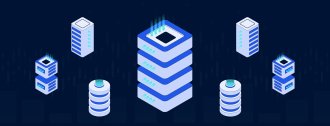
During my tenure as a tech specialist, I have often faced the dilemma of choosing the right NoSQL document-oriented database for an upcoming project from a plethora of options available. Given my experience, I know how daunting and time-consuming the entire process can be. To facilitate decision-making when it comes to selecting a suitable service for data storage, I have compiled this concise yet informative guide, providing a comprehensive comparison of Cosmos DB, MongoDB, and MongoDB Atlas.
First, I have identified the key features of each data storage option based on specific criteria.
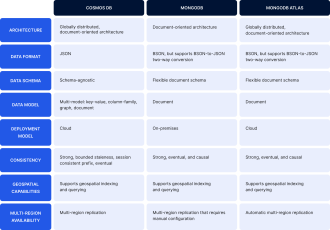

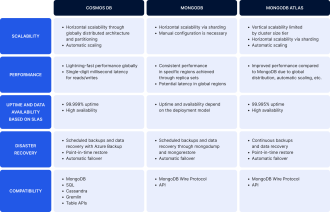

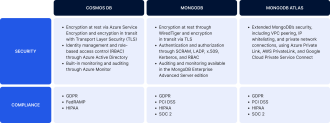

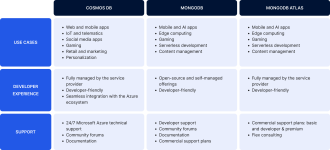

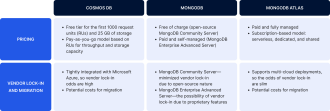

We made it possible to empower data-driven insights and advanced analytics for the client’s success.
Next, I have analyzed the difference between Cosmos DB and MongoDB, as well as MongoDB Atlas, summarizing their key benefits and limitations.
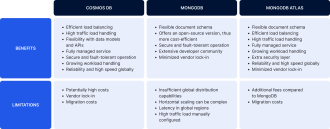

After careful consideration, I have drawn the following conclusions:
All the same, the final choice depends on your specific demands, priorities, and budget considerations.
It is no secret that the right database has the potential to shape the trajectory of your business success. As technology steadily moves forward, multiple businesses are adopting non-relational databases at a massive scale, and for good reason. NoSQL solutions excel at handling extensive, even excessive, amounts of data in various formats, offer unmatched scalability, and deliver lightning-fast performance and speed. However, with so many NoSQL options available in the market, companies often struggle to determine which storage system will best satisfy their demands. To navigate you through the selection process of MongoDB Atlas vs. Cosmos DB vs. MongoDB, I have crafted this helpful guide. If you are still uncertain which document-oriented data storage service will most effectively fulfill your business demands, contact our experts now, and we will help out!
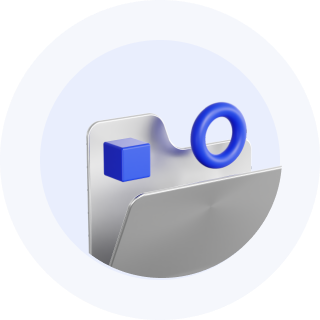
Cosmos DB is a fully managed NoSQL database distinguished by features, such as turnkey data distribution, support for multiple data models, high availability, scalability, low latency, and seamless performance.
MongoDB is a self-hosted non-relational database renowned for its flexible document schema, high availability, and strong performance in designated regions. MongoDB Atlas, in turn, is a fully managed cloud database service that extends the capabilities of MongoDB, offering global distribution, improved scalability, and advanced security features.
MongoDB Atlas vs. MongoDB vs. Cosmos DB pricing depends on several key factors, including the deployment method, throughput, storage capacity, data transfer, and more.
Can’t find the answer you are looking for?
Contact us and we will get in touch with you shortly.
Our team would love to hear from you.
Fill out the form, and we’ve got you covered.
What happens next?
San Diego, California
4445 Eastgate Mall, Suite 200
92121, 1-800-288-9659
San Francisco, California
50 California St #1500
94111, 1-800-288-9659
Pittsburgh, Pennsylvania
One Oxford Centre, 500 Grant St Suite 2900
15219, 1-800-288-9659
Durham, North Carolina
RTP Meridian, 2530 Meridian Pkwy Suite 300
27713, 1-800-288-9659
San Jose, Costa Rica
C. 118B, Trejos Montealegre
10203, 1-800-288-9659